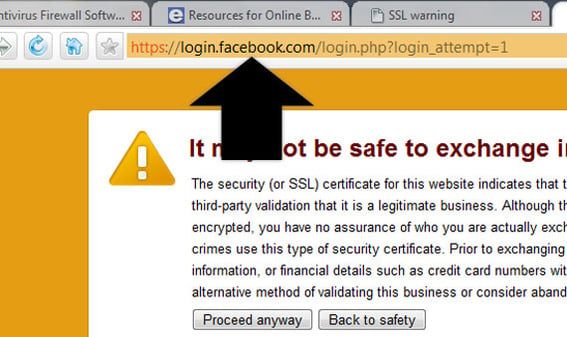Ecommerce merchants are digital natives. They live, in a sense, online, operating their businesses, marketing, and even servicing customers on the World Wide Web.
But the Internet can be a wild place, and sometimes digital natives become a little too comfortable with their surroundings. As a case in point, last week I received an email from what I thought was a somewhat trusted source—this person had opted into a list that I help manage—suggesting that I look at a particular site as an example of how to promote brands in an online store. When I arrived at the site, which by the way had a functioning certificate, I found it was a scam.
The extremely cautious Comodo Dragon Internet browser, from Internet and PC security firm Comodo, would have given me a little warning. Now don’t worry. My computer did not get infected with a virus, nor did I offer up my credit card numbers to a swindler. But it did serve as a little reminder that not all sites are safe. This is the very reason that I am awarding the Comodo Dragon browser three out of a possible five stars in this “The PEC Review.”
“The PEC Review” is my weekly column created to introduce you to the products or services that I believe will improve your ecommerce business. This week, let me share with you how I’ve been using Dragon.
Lesser Certificates Beware
One of Dragon’s key differentiators is its disdain for standard SSL certificates. The thinking goes that while the data may be encrypted there is no evidence that the site owner is legitimate.
Here, in fact, is exactly what the Dragon warning says when you encounter a standard SSL certificate.
“The security (or SSL) certificate for this website indicates that the organization operating it may not have undergone trusted third-party validation that it is a legitimate business. Although the information passed between you and this website will be encrypted, you have no assurance of who you are actually exchanging information with, and many websites connected to cyber-crimes use this type of security certificate. Prior to exchanging sensitive information including login/password, personal identity information, or financial details such as credit card numbers with any website that generates this warning, you should find some alternative method of validating this business or consider abandoning the transaction.”
This feature is both a blessing and a curse, since it means that Dragon shows you a lot of unnecessary warnings.

Take a closer look (below) at the URL from the example above.

That’s correct, Dragon is warning me about Facebook. Apparently, the browser is familiar with the social network’s privacy policies. In spite of these false alarms, I have actually started to use Dragon regularly when I am headed to questionable Internet neighborhoods. For example, I leave it idling (I generally have five browsers open all the time) on my desktop, and when I need to follow up on links from emails or shortened links on Twitter, I use it.
Comodo Does Have Ulterior Motives
I need to mention that I believe Comodo has something of an ulterior motive for making Dragon so paranoid. The company sells extended validation SSLs and other certificates that verify a site’s legitimacy. So that Dragon may, perhaps, be little more than a covert advertisement for the company’s products.
I recognize this possibility, and like Dragon anyway. Like I said above, it is a good browser for things like following shortened URLs. And, if we are to judge it just on surfing performance it is great. But more on that in a moment.
More Privacy
Dragon does offer very strict privacy. It refuses to give up your session information—like where you have been browsing, or what is on your computer clipboard—protecting users from some forms of attacks.
Comodo Dragon also includes an incognito mode that, like many browsers, will refuse to accept any cookies, which can be an additional privacy improvement.

The Browsing Experience
In addition to the heightened privacy and warnings, Dragon is an excellent browser. The browser is built on Chromium, which is the open-source platform behind Google Chome. In fact, from a features and functionality perspective, Dragon behaves exactly like Chrome, which is why it offers such a good browsing experience.
In some ways, you can think of Dragon as a re-skinned version of Chrome, minus the extensions and add-ons.
Summing Up
In my mind Comodo Dragon is a specialty browser, handy because of its tight-fisted privacy protection and zealous SSL reminders and warnings. That is why I am awarding it three out of a possible five stars in this “The PEC Review.”




